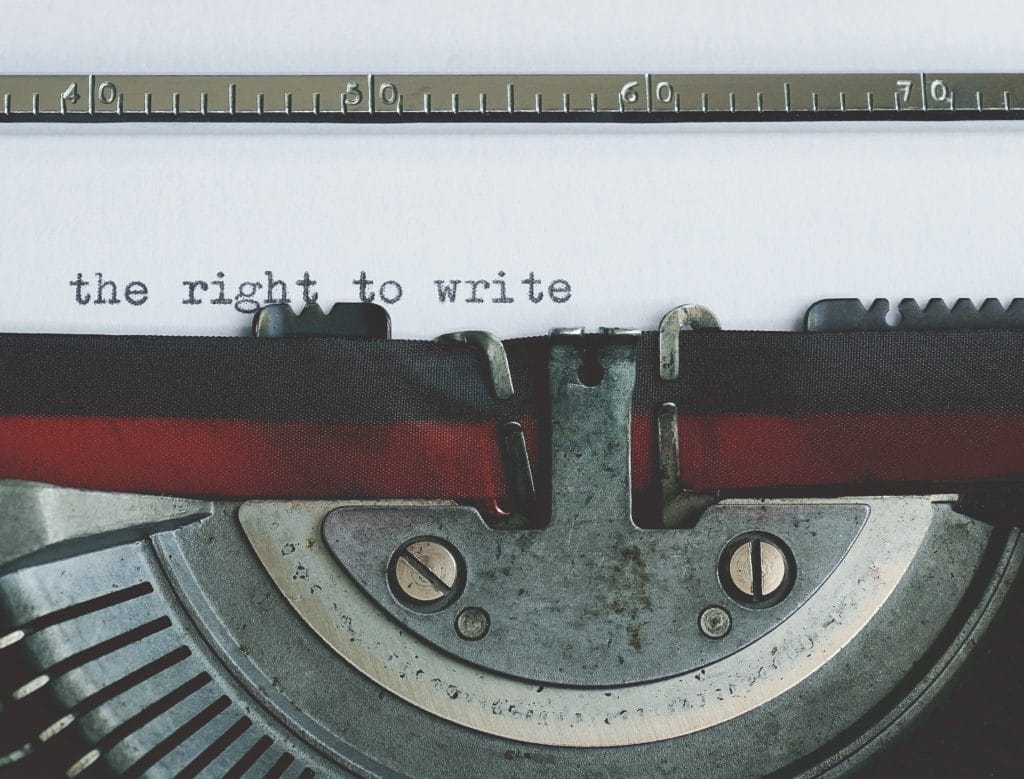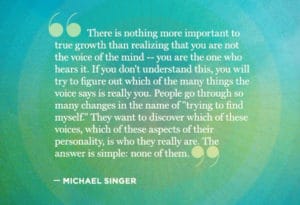
Making peace with the Writer’s Ego
The ego is known as a universal nemesis, the weaker or selfish part of ourselves and there are many ideas out there on how to deal with it. The correct placement of the Ego is a topic we cover in our foundational course and is key component to maturing in your spiritual journey. Hint: We learn to embrace it rather than make it wrong!
This month, we are sharing “Making peace with the Writer’s Ego“, a blog post written by Lisa Voisin, a senior faculty member of the Training in Power Academy and a published writer. Whether you are a writer or not, you are sure to relate, especially if you’ve ever put yourself out there – or – you really want to and are are mustering the courage to do so! Lisa has some great insight on how to tackle this part of ourselves so we can really let our light shine:
As writers, we often hear about keeping our egos in check. Or, worse, we see examples of egos gone wrong, when writers act out of control. We see it in the media or on twitter when a writer, perhaps famous, often successful, steps out of line and acts like a jerk.
Or we’ve heard horror stories of writers talking back to their readers, or responding to critics.
Stories that, inevitably, never go well for the writer.
We’re told it’s a tough business, that we need to develop a thicker skin, not take things personally, and never talk back to critics.
At writer’s conferences, I’ve learned about imposter syndrome, about never giving up, keeping the faith. I even attended a great session once about how to handle bad reviews. (Chocolate was the advice. Eat chocolate, so that your fingers are too messy to hit reply. because a writer should never engage. – It made me laugh anyway.)
While I agree with these tenets on principle, I believe the problems they are talking about (over-reactiveness, being thin-skinned, getting discouraged) are all just symptoms of another issue, one that we barely touch on: the writer’s ego.
In the arena of being an author, I’m still quite new. I’ve been writing for over a decade and published for about five years with an indie press, so I’ve hardly been faced with the challenges faced by some of the most successful writers. The experience I am leaning on for this post is that of a meditation teacher. I’ve had a daily meditation practice for almost twenty years. That, to me, is a success of a different kind.
My meditation practice has brought many lessons to my awareness. Not the least of which has been dealing with my ego. I don’t mean destroying it or trying to shut it down. But healing and making peace with it.
The ego sometimes gets a bad rap in the world. Often because the only time we’re aware of it is when someone’s ego is puffed up like the fur of a terrified cat. But our ego is with us every day, from the moment we wake up until we fall asleep, it’s there, chattering at us, trying to make sense of our world and protect us from perceived slights.
First, I should start with a bit about the ego. That’s what today’s focus is on, defining it. We’ve all heard of the ego, but it can be tough to spot at times. According to Google Dictionary:
So, ego is the thing that makes us identify as a singular entity, a singular self, an “I” (or “conscious thinking subject” in metaphysics, above), in a world where we are all connected. It is the thing that makes us compare our self with other selves (“reality testing”) to see if we match up or fit in.
There are many texts that discuss the ego, but in the case of Writer’s Ego, I’m going to describe it as:
A writer’s sense of self esteem or self importance and personal identity based on the way they see themselves in the world, compared to everyone else (or, ‘reality testing,’ as described in Psychoanalysis, above).
I am not a therapist or psychologist, but I am very familiar with my ego and have spent a good number of decades living with it and two decades consciously making peace with it.
Does that make my ego in great shape? More healthy? — I honestly don’t know, because I’ve spent years training myself to not compare myself, so that’s a bit of a trick question. There are still times when I get caught in ego, we all do. But I can say that I’ve learned to spot when it’s puffing itself up, and I’ve learned to ask myself why. This type of self reflection has brought me a kind of peace in my daily life, and it has brought me peace as a writer.
What I have learned is that the more I make peace with my own ego:
- The less I need to search outside myself for validation by comparing myself against another
- The more I recognize the inter-connectedness of life
- The less affected I am by the opinions of others, because I follow the adage that ‘other people’s opinions of me are none of my business’.
- The more at peace I am with myself in my own skin.
How does this affect my writing?
I still strive to become the best writer I know how to be. My feelings can still get hurt when someone says something unkind, and I am far from perfect. But being mindful is a journey rather than a mythical destination of perfection. I can say, however, that I am better than I was before.
I feel better about myself and my life. And when those things are in place, I am less fearful and my writer’s ego can rest. It doesn’t need to puff itself up to protect me.


